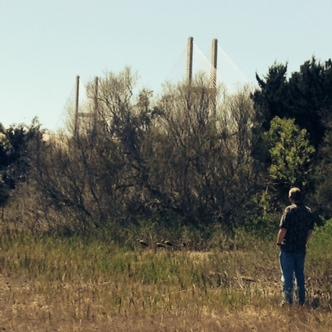 “But what could you do? Only keep going. People kept going; they had been doing it for thousands of years. You took the kindness offered, letting it seep as far in as it could go, and the remaining dark crevices you carried around with you, knowing that over time, they might change into something almost bearable.” –Elizabeth Strout in Amy and Isabelle
“But what could you do? Only keep going. People kept going; they had been doing it for thousands of years. You took the kindness offered, letting it seep as far in as it could go, and the remaining dark crevices you carried around with you, knowing that over time, they might change into something almost bearable.” –Elizabeth Strout in Amy and Isabelle
On a March day in 2001, as our pastor stood in our driveway, Greg and I put seven-year-old April and fifteen-month-old Abby in our secondhand Ford Windstar and set out for Seattle, Washington. I was thirty and confident–full of love for my family and faith in God. I’d done my research–nationally, Seattle Cancer Care Alliance had the highest survival rate for the bone marrow transplant Greg needed for his leukemia. We would see the country on our nine-day drive, easing our transition from a normal couple to our roles of patient and caregiver.
It was when we crossed the Ohio River that I felt the reality shift–the fact that this was a life-altering experience for our family, and it couldn’t masquerade as a little cross-country jaunt. I drove over a big metal bridge, and then I drove across America, and, sure, we saw Mount Rushmore and the St. Louis Arch and flew in a seaplane over Pocatello, Idaho, and marveled at much, but we also spent months watching 21 people die. 21 mothers, fathers, and young children.
Twice, we were the first to comfort the freshly widowed. As they wailed, Abby toddled past, whispering, “Heart’s broken? Heart’s broken,” and patting them with her chubby hands.
Greg and I said good-bye to our marriage with its traditional gender roles and warm affection. The “casualities of caregiving” were tremendous–from the financial and romantic to the mundane: initially, Greg had little energy to participate in the family life he’d fought hard to save. We remained consciously grateful because, after all, Greg was one of a literal handful to emerge alive–there are four remaining survivors from our 2001 summer crew.
Greg never embraced the role of “cancer survivor”–never did a survivor’s lap at “Light the Night,”didn’t celebrate his transplant anniversary as his “second birthday,” didn’t write his anonymous donor yearly. He just quietly went on with life. With normalcy.
Later that morning, the doctor came to tell me, “The tumor is less angry . . . he won’t need the dissection.”
Those people, the people we were in 2011, they were still nice, kind, and warm-hearted. They were even reasonably hopeful. On September 29, 2011, the date of Greg’s jaw removal, my Facebook status read, “D-day!!! Expecting good things!”
I read those words and marvel.

I did not go with my husband to any doctor appointments in January. I did not drive him home from the biopsy appointment. I was not there to hear the words, “You have cancer.”
I was 81.3 miles away. I got a text.
This third cancer is different. We are starting from a place far past agony. There is nowhere to plunge–there’s no nearby cliff’s edge, no tied knots, no knuckled fists clenching stubbornly to bent branches.
Myself, well, I don’t know if I am shattered at the bottom of the cliff or on a ledge under the initial fall, but I do know that I am no longer in a mode where “I must hang on” is a thought.
There’s just me over here, and him over there.
And there’s cancer.
Isaiah 30:15 says, “In quietness and confidence shall be your strength.” The Message puts it like this: “Your strength will come from settling down in complete dependence on me.”
The twenty-two days waiting for surgery have been awful and long, but that verse hasn’t left me.
Last night, Greg wrote on Facebook, ” Right now it is nearly impossible to see how we could ever recover from this and live a life that would pass for normal.”
But then he added, “If there was ever a situation where we could see the hand of God move to do great things this would be it.”
Selah.
I am over here, and he is over there, and there’s cancer, but there is also the hand of God.
 I am just mad. Any blog about this cancer is going to have to start out with a lot of anger and wrath and ranting. As an English teacher, I would like to give some explication, set the background up, tell you little things about the past battles Greg has had with cancer, and kind of give you a general lay of the land. But I can’t, because I am MAD.
I am just mad. Any blog about this cancer is going to have to start out with a lot of anger and wrath and ranting. As an English teacher, I would like to give some explication, set the background up, tell you little things about the past battles Greg has had with cancer, and kind of give you a general lay of the land. But I can’t, because I am MAD.